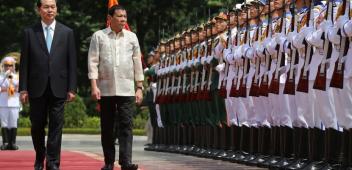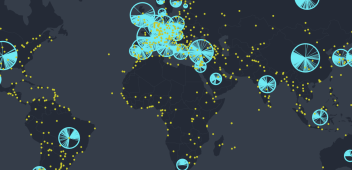India’s new world: civil society in the making of foreign policy
Ashok Malik and Rory Medcalf argue that Indian foreign policy is being shaped increasingly by three dynamic aspects of civil society: business, the Indian diaspora and the aggressive Indian news media. Indian diplomacy needs to adapt to these new realities. And foreign nations need to understand them to engage with this rising power.

- India’s external engagement now goes far beyond traditional diplomacy
- Business, media and the diaspora are causing new challenges for Indian foreign policy but are also sources of opportunity
- Governments need to engage with these new drivers of Indian foreign policy
Executive Summary
Twenty years after it began to deregulate its economy, India is a more externally engaged country than ever. A long-insular nation and society is expanding the definition of what constitutes foreign relations. Much of this change is driven by three new sources of pressure on India’s diplomatic establishment: an ambitious business community, a vocal diaspora and a rambunctious and aggressive news media.
The support of Indian capital and Indian nationals abroad is now a legitimate expectation on New Delhi’s diplomacy. Indian politicians are regularly lobbied by voters whose relatives face very local challenges abroad. ‘Tabloid television’ stirs public emotion and constricts the space for India’s diplomats.
These are realities of the new India that are not going to go away. Anyone who seeks to influence Indian strategic and foreign policy will have to understand and work within this framework. The Indian policy establishment will need to adapt – for instance, through better coordinating or even merging its external affairs and commerce ministries. If cleverly handled, the media, the diaspora and especially the convening power of Indian business peak bodies offer avenues for New Delhi to exert indirect influence on some increasingly important relationships, such as with the United States, Japan, Singapore and potentially Australia. Astute foreign partners can use these avenues to influence India’s worldview as well.



